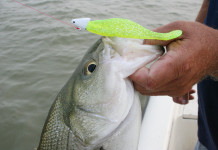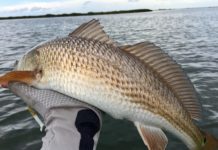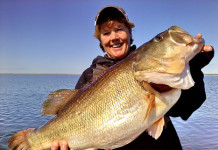A federal judge in Brownsville has ruled in favor of the Texas Parks and Wildlife Department and the Louisiana Department of Wildlife and Fisheries in a joint lawsuit brought by the agencies challenging an emergency regulation enacted by the National Marine Fisheries Service over red snapper seasons.
The ruling means that the recreational red snapper fishing season in federal waters off the Texas coast will be longer than it would have been under the emergency rule.
On Feb. 8, over the strong objections of state agency representatives from Louisiana, Texas, and Florida, the Gulf of Mexico Fishery Management Council voted to implement an emergency rule that could shorten the recreational red snapper fishing season in federal waters off the Texas, Louisiana, and Florida coasts, while extending the seasons in federal waters off the Alabama and Mississippi coasts.
On April 18, the council voted 8-7 to overturn the emergency rule, in effect reversing the Feb. 8 vote. However, NMFS declined to rescind the original emergency rule as requested by the April 18 vote.
As published in the federal register March 25, the emergency rule would empower the NMFS southeast regional administrator to reduce the red snapper season in federal waters off Texas, Louisiana and Florida since those states set seasons in state waters that were different than seasons in federal waters. In Texas, federal waters begin nine nautical miles from the state’s coast and extend 200 nautical miles.
The joint lawsuit alleged that there was no emergency to justify the proposed rule. The last stock assessment indicates red snapper recovery remains on track. The two states also alleged that the emergency rule violates the federal policy of cooperative federalism by improperly attempting to regulate the red snapper season in state waters. The lawsuit also alleged that the emergency rule violated federal law by discriminating against anglers and charter boat operators in Texas, Louisiana and Florida.
The three states have been trying to make sure their anglers have equal opportunity. The Charter Fisherman’s Association, a group of charter boat operators, also had filed a separate suit against NMFS that was later combined with the states’ suit, likewise seeking to overturn the emergency rule.
The opinion found the federal agency exceeded its authority under federal law when it declared an emergency instead of following the required normal procedures for providing public notice and seeking comment, including comments from fishermen. The court also found the rule did not enhance red snapper conservation, but instead redistributed fishing opportunity from anglers in Texas, Louisiana and Florida to anglers based in Alabama and Mississippi. Judge Andrew Hanen held that such redistribution discriminated against anglers in states with fishing seasons that do not match the federal season and rewarded those living in states that do, in violation of federal law.
TPWD was represented by the state Attorney General’s Office in filing the lawsuit.
The Texas and Louisiana agencies have maintained that while a proposed shortened season will have no apparent conservation benefit, it would have an economic impact. TPWD estimates that the originally projected 27-day season would generate at least $28 million from recreational fishermen in Texas, while a 12-day season would cut that figure by at least $16 million in lost retail sales in Texas. For Louisiana, reducing a 45-day season to a nine-day season could result in an estimated decline in economic value of approximately $8 million to recreational anglers in that state.
It will be necessary for NMFS to implement Gulfwide seasons in accordance with the court’s decision. Prior to the enactment of the emergency rule, NMFS had estimated that if all Gulf states were treated equally, the season would have been approximately 22 days. However, recent communications from NMFS suggest that a Gulfwide season will be longer than that.


















